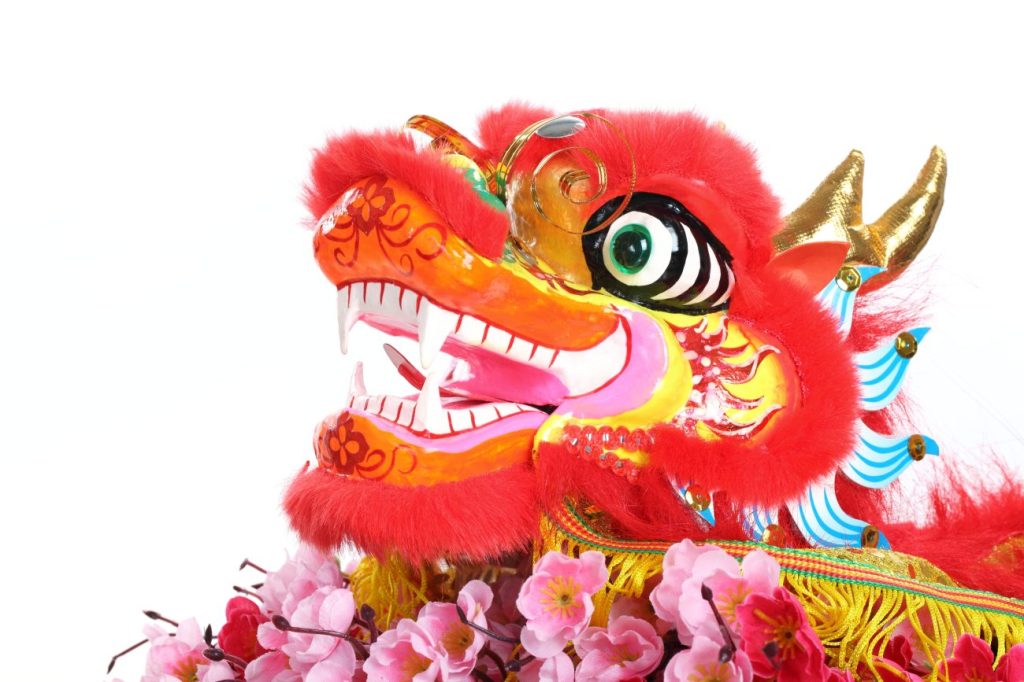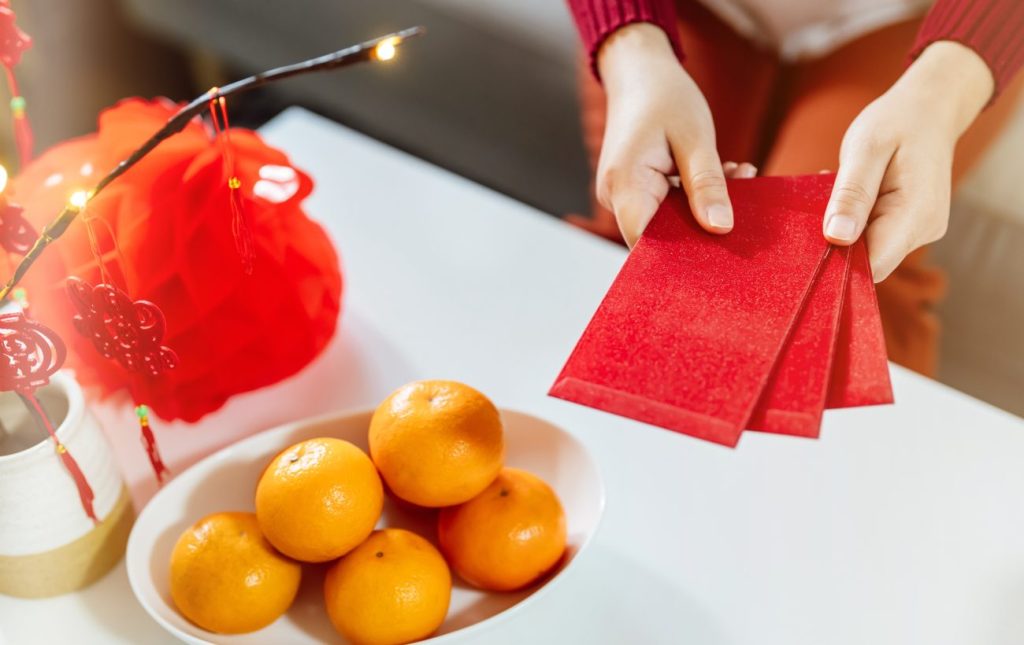As we start off 2025, there’s excitement leading up to Lunar New Year. What began as an annual observance in China, has now become a globally recognized celebration. But just because it’s not typically a public holiday in your school, it won’t stop your classmates or friends from taking the time off to celebrate during this time of year.
One of the fun traditions that’s been passed down many generations is the giving of red envelopes that contain lucky money. If you’re not familiar with how it works, we’ll give you the scoop on everything you need to know about the tradition of giving and receiving red envelopes during the Lunar New Year.
What is Lunar New Year?
Lunar New Year (also known as Chinese New Year or Vietnamese New Year) marks the beginning of the annual holiday that lasts up to 16 days. It’s filled with loads of tasty food and cultural festivities with family and friends. You’ll find that South/East Asian countries celebrate Lunar New Year including China, Hong Kong, Vietnam, South Korea, Japan, Malaysia, Indonesia, Thailand, Mongolia, Tibet and the Philippines. However, in recent years, it has become more popular in Western countries or regions that have an Asian population.
When is the Lunar New Year?
The Lunar New Year falls on Wednesday, January 29, 29025 and it’s the Year of the Snake. You may have noticed that the date changes every year and tends to fall between January 21 to February 20. That’s because the date of the Lunar New Year coincides with the lunar calendar which follows the phases of the moon. This year will be the year of the dragon, (based on the Chinese zodiac which represents 12 animals) which will bring about power, strength, and success.

What is a lucky red envelope?
The Chinese red envelope (called “lai see” in Cantonese and “hong bao” in Mandarin) is a monetary gift. It’s a cultural tradition where it’s believed that giving these lucky red envelopes will bring good fortune to those who receive them. Typically, they are given during special occasions such as holidays, weddings, graduations, and birthdays. With the tradition being passed down through generations, it’s now expanded to include festive social gatherings.
You may be wondering, where to get red Chinese envelopes. Well, you can find them at Asian shops or at your local Chinatown, and most banks tend to offer them. You can even send digital red pockets through the popular Chinese messaging app WeChat.
Why do you give red envelopes for Lunar New Year?
On the surface, it may appear that it’s about the money. In reality, it’s about the red envelope that wraps the money. That’s because red is an auspicious colour in Asian culture as it symbolizes energy, prosperity and celebration.
Chinese New Year is one of the special occasions where people will give red envelopes. So, if you’re lucky enough to receive a red envelope from your family or friends, it means that they wish you good luck for the year ahead.
Who do you give red envelopes to?
The tradition started in China when older individuals would give red envelopes to young children. So, if your family celebrates Lunar New Year, you may have received a few red envelopes yourself.
Nowadays, the rules aren’t as strict. If your parents celebrate Lunar New Year, it’s a good idea to ask them how closely they follow these rules. If they’re more relaxed about it, you may decide to hand them out to your friends, relatives, classmates, and teachers.
How much money do you give?
There’s no hard and fast rule about this. The general guideline is that the closer relationship you have with that person, the more money you can give to them. It can include physical coins or bills. It’s also customary to have crisp and clean bills. So you may want to pay a visit to your local bank to ask for new bills.
An important tip to keep in mind is that the number 4 is viewed as bad luck. This is because the pronunciation of the number 4 sounds like death in Chinese. On the other hand, 8 is considered the luckiest number as it brings prosperity to people. So, whether it’s $8, $18 or even $28, it is viewed favourably.
As a teenager, my parents would gift me red envelopes each year. I’d stash the money away to save up to buy a new pair of jeans at the shopping mall.
How to give and receive a lucky red envelope during Chinese New Year
There is some etiquette to follow when giving and receiving a lucky red envelope. Traditionally, children would kneel to accept their red envelope from their older family members as a sign of respect and is still practiced throughout parts of China today. One rule that’s easy to remember is to give and receive a red envelope with both hands and say “Thank You” or “Happy New Year”.
As much as we’re used to watching our friends open gifts during their birthdays, it’s actually frowned upon to open your red envelope in front of the gift-giver. But don’t worry if you mess up. In today’s society, the rules aren’t as closely followed.

Other gifts you can give instead of red envelopes
Besides handing out red envelopes, there are other items you can choose to give to someone. For example, if you go to an Asian grocery store, the few weeks leading up to Lunar New Year, you’ll often find snack trays that contain sweetened dried fruits, gift boxes filled with sweet treats, rice cakes, candies and fortune cookies. Plus, there’s seasonal fruits like clementines, oranges, and pomelo which are delicious.
More ways to celebrate Lunar New Year
There are other ways you can celebrate the Lunar New Year with your family and friends. You can make fresh homemade dumplings which can be a fun activity for all ages. If you’re feeling festive, you wear a red outfit. Another fun family activity is to attend local Lunar New Year festivities in your city which may include a lion dance performance, arts and crafts and food vendors.
Some people who follow superstitions are known to avoid washing their hair as it will wash away the good luck. Even sweeping the floors is considered taboo because it can sweep away their wealth.
Growing up, our family enjoyed eating hot pot where you have a portable stove top that contains a savoury broth that’s placed in the centre of the dining table. A variety of vegetables, noodles, meat and seafood are prepared and cooked in this broth. It’s a fun way to gather around and have a communal meal with your family and loved ones.
As we celebrate the year of the dragon, if you receive a lucky red envelope this year, think about what you’d like to do with your money. It may be putting it towards a savings goal, or splurging on buying a new outfit. Hopefully, this gives you some ideas and inspiration on some traditions you can start at school or even with your friends who look forward to this annual celebration.
Download Mydoh and help build the foundation of financial literacy for your kids and teenagers.
This article offers general information only and is not intended as legal, financial or other professional advice. A professional advisor should be consulted regarding your specific situation. While the information presented is believed to be factual and current, its accuracy is not guaranteed and it should not be regarded as a complete analysis of the subjects discussed. All expressions of opinion reflect the judgment of the author(s) as of the date of publication and are subject to change. No endorsement of any third parties or their advice, opinions, information, products or services is expressly given or implied by Royal Bank of Canada or its affiliates.


















